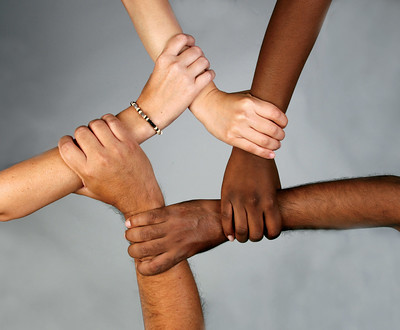I frequently speak with people of colour who report that when they raise concerns about subtle racism at work, their managers try to explain away their experience or find excuses for the perpetrator. The “I’m sure he didn’t mean it that way” syndrome. Most people want to do the right thing, don’t they? So why is subtle racism so regularly brushed under the carpet?
People who’ve never experienced racism are not clear what it is
The term “racism” evokes images of the aggressive, overt language and behaviour most of us would find deeply offensive. However, the racism most people of colour face at work is far more subtle. These forms of racism are often misunderstood, and can be interpreted by those who don’t experience them as not being a big deal and can be glossed over. At worst, people of colour can be perceived as making trouble when raising issues others consider to be insignificant.
Covert racism, for example, where people do not express openly racist views, but behave and speak in ways influenced by racist views they consciously hold in private, is often not visible to others. This makes it all the more pernicious.
Microaggressions are another example. Microaggressions are attitudes, behaviours and the use of language that intentionally or unintentionally diminish people from minoritised groups.
The impact can run deeper than the immediate pain caused by a specific incident, though this is bad enough. Regularly suffering these subtle forms of racism can undermine the confidence and well-being of people of colour, put barriers in the way of their progress, and in some instances force people to leave jobs they otherwise love.
People feel awkward addressing racism
A constant barrier in anti-racism work is the awkwardness people feel in even talking about the issues. I have even heard white people blaming people of colour for being too aggressive in raising their concerns, utterly unaware of the “people of colour are aggressive” trope they are perpetuating, and completely ignoring the fact that pain could be at the heart of people of colour raising concerns in a forceful way.
Accusing people of racism can feel like a “nuclear” thing to do, and tantamount to accusing someone of being evil. Because perpetrators can be perceived as otherwise being good people, the “halo effect” can kick in. A manager can feel that to raise issues would not be fair on a perpetrator given that, generally speaking, they are “a good bloke”. This can sometimes extend into making the person of colour feel bad for raising the issue in the first place.
People don’t know how to address racism
Even if people to whom subtle racism is reported want to address the matter with the perpetrator, they often don’t know how. They lack the language, tools and confidence to tackle the issues head on. However, this is such a simple matter to address. There is training out there for people who want to get it right. At the very least, a manager can believe and acknowledge concerns that a person of colour raises with them, and take them seriously.
Justice and fairness are at the heart of the mission of most non-profit organisations. If they are truly to achieve their mission, isn’t it essential to ensure that everyone within their organisation experiences justice and fairness too?
Latest News
-
Charities are ‘most trusted British institution’, survey finds
-
Charities’ ‘overuse’ of Africa imagery ‘risks reinforcing outdated stereotypes’
-
Covenant response: Leaders praise government commitment but action needs to follow
-
New benefit added for Charity Times Leadership Network members
-
PM: Charities won’t be 'shut out' or 'left to pick up the bits' under new covenant
-
Government hopes to reset relationship with charities as it launches civil society covenant
Charity Times video Q&A: In conversation with Hilda Hayo, CEO of Dementia UK
Charity Times editor, Lauren Weymouth, is joined by Dementia UK CEO, Hilda Hayo to discuss why the charity receives such high workplace satisfaction results, what a positive working culture looks like and the importance of lived experience among staff. The pair talk about challenges facing the charity, the impact felt by the pandemic and how it's striving to overcome obstacles and continue to be a highly impactful organisation for anybody affected by dementia.
Charity Times Awards 2023
Mitigating risk and reducing claims

The cost-of-living crisis is impacting charities in a number of ways, including the risks they take. Endsleigh Insurance’s* senior risk management consultant Scott Crichton joins Charity Times to discuss the ramifications of prioritising certain types of risk over others, the financial implications risk can have if not managed properly, and tips for charities to help manage those risks.
* Coming soon… Howden, the new name for Endsleigh.
* Coming soon… Howden, the new name for Endsleigh.
Better Society

© 2021 Perspective Publishing Privacy & Cookies











Recent Stories